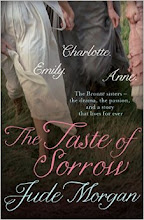 I had wanted to read all the 2009 Booker shortlist. Before the winner was announced, I managed only two, The Glass Room and The Little Stranger, both of which I loved. There was a stretch in the middle of the Sarah Waters' where I felt some tighter editing might have moved things along a little more pleasingly, but this minor fault was more than made up for by the novel's chilling last line. She is truly a mistress of storytelling - I still haven't forgiven her for the twist that comes halfway through Fingersmith, a shock so great that when I read it, I had to put the book down and lie silently for an hour before I was able to continue with my life!
I had wanted to read all the 2009 Booker shortlist. Before the winner was announced, I managed only two, The Glass Room and The Little Stranger, both of which I loved. There was a stretch in the middle of the Sarah Waters' where I felt some tighter editing might have moved things along a little more pleasingly, but this minor fault was more than made up for by the novel's chilling last line. She is truly a mistress of storytelling - I still haven't forgiven her for the twist that comes halfway through Fingersmith, a shock so great that when I read it, I had to put the book down and lie silently for an hour before I was able to continue with my life!The Children's Book was too large, as was Wolf Hall, to carry around, and with some misgiving I determined to leave them both until their paperback counterparts were available. Wolf Hall comes at the beginning of March, but I am delighted to say that I am now happily ensconced in the lightweight version of The Children's Book. And it was worth the wait.
Beginning in 1895, this vast opus, part novel, part social history, bridges for me a fascinating gap. Last summer's guilty pleasure was the watching of Desperate Romantics, and subsequent reading about the pre-Raphaelites and their influence on the Arts and Crafts movement and indeed, the social reform it spawned. In addition to this, I have long held a crush on Rupert Brooke, and find the late Edwardian era and First World War a compellingly interesting time. Class issues and the rights and standing of women were at the forefront of reform, and the budding of the world we now live in began in that bloodied soil. These two eras are joined by The Children's Book; one character is a Rossetti 'Stunner', others are related to major players in Brooke's short and turbulent life. It is immensely satisfying to be able to identify people and places as real, and to know already something of the world immediately preceding that of AS Byatt's creation, and the one that follows.
I would add that this is a book entirely suited to the title of this blog; I find myself curled up and reading by candlelight night after night, frustrated only that I am too exhausted during the week to dedicate more of my time to it. It is an enthralling story, filled with characters with whom I am already, after only 200 pages, very much in love. It is real, and yet part dark fairytale, and ultimately deeply satisfying; true literary porridge.









